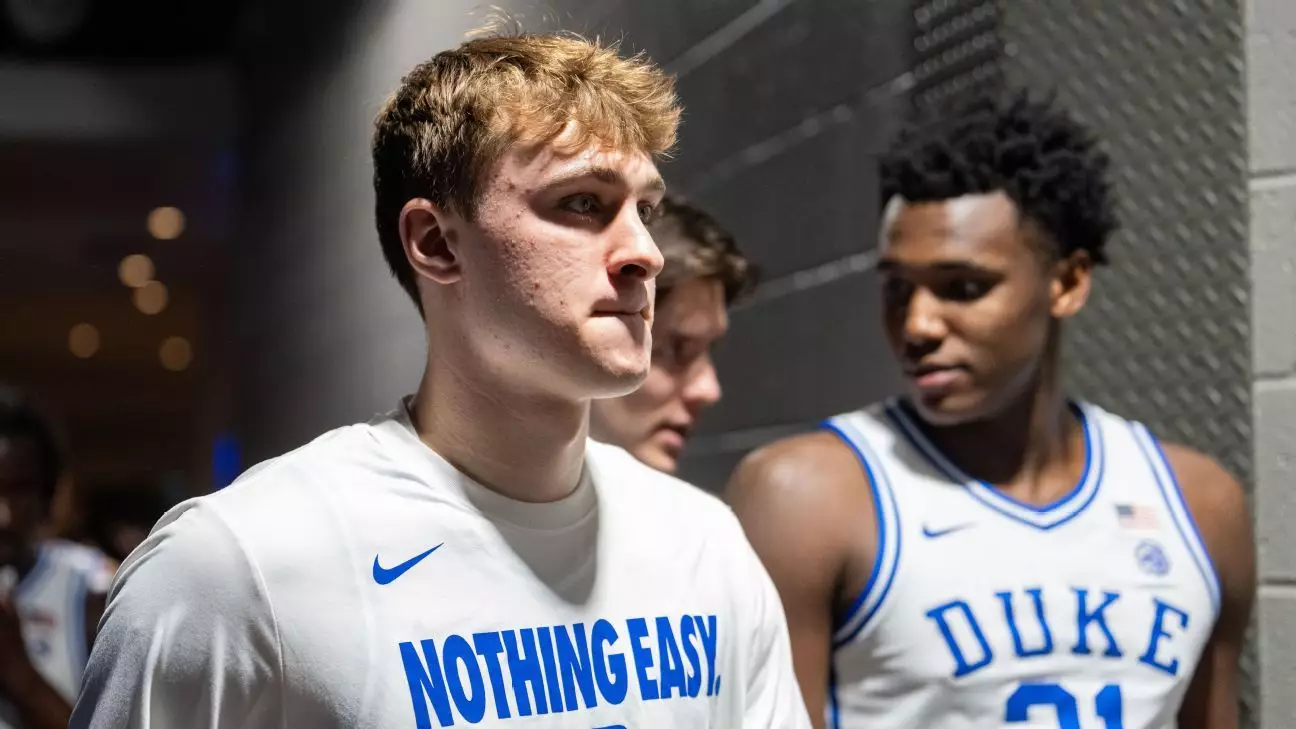In the high-stakes world of college basketball, injuries can create a ripple effect that reverberates throughout an entire team’s season, and Duke’s Cooper Flagg is no stranger to this unfortunate narrative. As the ACC Player of the Year, Flagg had captured the attention of hopeful NBA scouts and die-hard fans alike. Now, after an alarming ankle injury during the ACC tournament opener, his availability for the NCAA tournament stands as a beacon of both hope and skepticism for Duke’s championship aspirations. While NCAA senior vice president Dan Gavitt asserts that Flagg will be ready for postseason play, the mere thought of an injury to a star player raises concerning questions about the Blue Devils’ potential to compete at the highest level.
Injuries: The Great Equalizers
Imagine the Minnesota Vikings’ 1998 season, where they fell short not due to lack of skill but because of unpredictable injuries. The same ethical quandary emerges in the realm of college basketball, where several key players could influence how the Selection Committee views the affected teams. While Duke has built a formidable résumé with victories against powerhouse teams like Arizona and Auburn, Flagg’s sprained ankle sends shock waves through the psyche of both players and supporters alike. Injuries to athletes often act as “great equalizers,” making lower-seeded teams look much more formidable than their record may suggest.
Maliq Brown, another significant player for Duke, is facing a shoulder injury, adding further uncertainty to their lineup. Rivals are likely licking their lips at the prospect of pitting their full strength against a contender operating at reduced capacity. Tournament basketball showcases the survival of the fittest, which cannot be more fittingly encapsulated in Flagg’s situation. As he is sidelined, the Blue Devils must adapt or risk succumbing to defeat.
The Psychological Battle
Let’s face it: sports are about more than just physical prowess; they’re also a mental game. Following Flagg’s injury, Duke’s mental resilience comes into question. A player of his caliber not only lifts the team’s performance statistically but also acts as a psychological bedrock for the whole roster. His presence on the court embodies skill, confidence, and experience, while his absence multiplies doubt and anxiety. The Blue Devils may very well suffer from a psychological blow akin to that of a fragile chess player staring down an overwhelmingly powerful opponent.
Duke coach Jon Scheyer has a significant task ahead. His ability to regurgitate motivational speeches and tactical wisdom is vital to countering the weight of uncertainty that lingers after injuries. As the team processes Flagg’s absence, they must also recalibrate their expectations and aspirations. The mental stakes are just as high as the physical, and Scheyer’s leadership will be instrumental in ensuring that they don’t spiral into a state of despair.
Impact on Tournament Seeding
Gavitt’s comments about the lack of impact Flagg’s injury may have on Duke’s seeding could be seen as optimistic or naïve, depending on one’s perspective. Seeding in the NCAA tournament plays a pivotal role in determining a team’s pathway to success. The perception of how impactful injuries are could influence how the selection committee weighs Duke’s season. Duke’s impressive 19-1 record in the ACC regular season is validated by their potential still being assessed—yet the potential absence of a key player like Flagg might be the thin line separating them from an easier route in the tournament.
Tournament history has shown that the higher seeds often have the best chance of success, while low seeds can create shocking upsets. If Flagg is not at 100% during crucial games, what does that mean for Duke’s chance to capitalize on favorable matchups and avoid early pitfalls? There’s an unsettling reality lurking beneath the surface here: past success cannot guarantee future outcomes, especially when the fitness of star players is put into question.
Hope Springs Eternal: Looking Ahead
While the prospects of Flagg impacting Duke positively remain hopeful, we cannot ignore this precarious scenario where injuries loom large. This moment serves as a reminder that resiliency, adaptability, and leadership are equally essential in navigating the treacherous waters of tournament season. All eyes will certainly be watching as Duke moves forward—will they rise triumphantly or falter in their quest for the national title? The countdown to the NCAA tournament has begun, and with it, the layers of uncertainty surrounding Cooper Flagg’s condition may hold the key to Duke’s destiny.


Leave a Reply